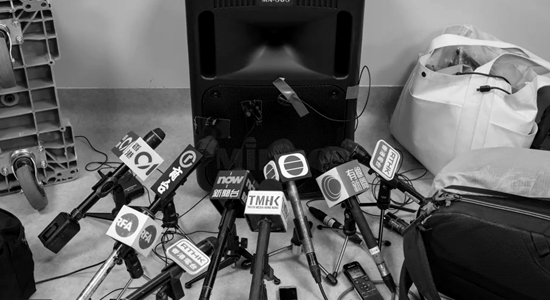
Hong Kong Free Press offers an overview of political happenings in July 2024, and it doesn’t seem that its notices are calculated to bring joy to the hearts of the city’s Chinese Communist Party rulers.
Among the items:
● “Jimmy Lai trial adjourned until November.” The slow-walking of the former Apple Daily publisher’s trial seems to be one more form of torture.
● “Hong Kong 47: Mitigation delayed. Mitigation hearings for 45 pro-democracy figures who have been convicted of taking part in a conspiracy to commit subversion as part of the city’s largest national security case to date were delayed by almost a month because of ‘unforeseen circumstances.’ ”
● “Chow Hang-tung to pay HK$100k legal costs.” That’s about $12,800 USD. The government has ordered the rights activist, incarcerated since September 2021, to pay this amount because she fought the government’s ban of the protest anthem “Glory to Hong Kong.” The message apparently being that you should not oppose tyranny if you don’t want to pay for the tyrant’s time and trouble opposing your opposition.
● “Hong Kong Christian Institute to disband. The Hong Kong Christian Institute, which supported the city’s pro-democracy movement, announced that it planned to deregister and disband, saying it was ‘constrained by the current social environment.’ ”
● “Titles removed from Hong Kong Book Fair. At least two exhibitors at the Hong Kong Book Fair…were ‘advised’ to stop selling certain books after the event’s organiser allegedly received complaints.”
● “HKJA head fired by Wall Street Journal. American newspaper The Wall Street Journal fired Hong Kong-based reporter Selina Cheng weeks after she was elected chair of the city’s embattled Hong Kong Journalist Association (HKJA), which has met with increasing pressure from authorities.”
● “Hongkongers think criticism of gov’t is good…. In Hong Kong, 81 per cent of the 2,000-odd people surveyed [by Pew Research Center] said they believed that people who disagreed with what the government was doing should be able to publicly criticise the authorities. Fifteen per cent said they should not be able to.”
How long will the Free Press, founded by Tom Grundy in 2015 as an alternative to the South China Morning Post, be able to continue to function in Hong Kong? And if it gets banned, then what?
Four years ago, Grundy said that he and his staff were ready if the government were to make the paper’s existence in Hong Kong impossible. In a piece for The Guardian (“Hong Kong’s national security laws are designed to make the media self-censor,” July 13, 2020), Grundy wrote:
Even if we are ultimately forced to operate from outside Hong Kong, our newsroom is here to stay. Following a year of tear gas and pepper spray on the protest frontlines, our five-person team has no appetite for self-censorship, and we are having open and honest weekly discussions to safeguard against allowing fear to infect our work. We have frequent security audits, and each of us has decided that we are ready to face a fine or imprisonment to protect our sources, many of whom are reluctant to speak now at all. Over the past week, we have also consulted legal and business experts to ensure our long-term viability and income no matter what the future holds or where we may end up.
It’s a dangerous situation, and what the Press has feared has already partly come to pass. In August 2021, Grundy announced that “HKFP columnist and ex-RTHK broadcaster Steve Vines has left Hong Kong for the UK, citing the security law crackdown.”
Grundy said that Vines would continue to write for the paper. In a separate article, Vines explained his reasons for leaving. He did indeed publish several columns since then, but he does not seem to have written anything for Hong Kong Free Press since May 2023.
One of Stephen Vines’s last pieces: “Press Freedom Day: Vestiges of independent media still detected in Hong Kong.”





